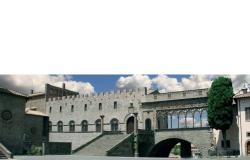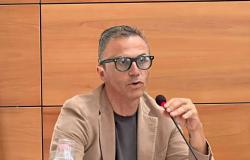“It is not true that the investigation for the Via d’Amelio massacre was a failure”. The national anti-mafia prosecutor Giovanni Melillo said this at the Foglio Innovation Festival in Venice. Interviewed by the head of the cultural insert of the Foglio and director of Buttanissima, Giuseppe Sottile, the magistrate responded to a question on the effectiveness of the trials on the mafia massacres in 1992. “I had to recognize that this affair was marked by errors and omissions. My first statement since taking up my role was to apologize to Paolo Borsellino’s family and to the families of the escort. I apologized as I had never dealt with those proceedings. But despite this it is not true that it was a failure. Many of the warrants were condemned and justice was able to demonstrate with its course that it could resume despite the errors. I believe demonstrating the ability to correct is an important thing that shows how the trials were all justified.”
The interview then focused on the real power of the national anti-mafia prosecutor’s office: “The idea of the anti-mafia and anti-terrorism prosecutor that I have is that of a mayor of impulses and coordination that is exercised together with the district offices to support their efforts and align their information. It is an idea far from a prosecutor who is actually a super prosecutor, as Giovanni Falcone thought. I believe that plurality is a value.”
“In front of us – said Melillo – we have much more difficult challenges than in the past. Criminal structures are not only local and regional, but also and above all on a global scale. There are criminal phenomena that have different connections from the past and are visible to all, especially in those regions where processes of political and social destabilization are underway. Our mafia organizations are now in the big game on a global scale, which is why we need to build a contrast with global criminal organizations. We work daily in this dimension, where it is also foolish to make a classification of the dangerousness of criminal phenomena. We then risk reading them backwards and the mafias that we put in the last places then become more tolerable: it’s not a great thing.”
Three anti-mafia prosecutors first from Melillo have landed in politics, Sottile notes during the conversation, bringing the discussion to the recent approval of the judiciary reform. Melillo comments: “I could throw the ball into the stands and say that with the separation of careers this would become a phenomenon that everyone would be asked to get used to. But I don’t want to throw the ball into the stands because I recognize that the problem exists. This is the reason why a year and a half ago I asked the legislative office of the Ministry of Justice to insert a provision prohibiting the election of the national anti-mafia prosecutor and his ability to assume government positions. I realize that this commitment, even a formal one, would not be enough to dispel doubts, but I believe that I certainly would not oppose this rule. But it’s not up to me to introduce it.”





